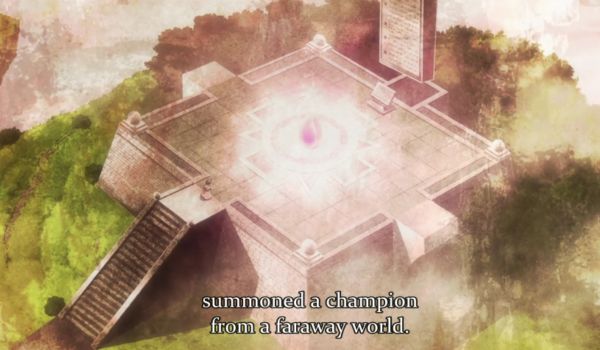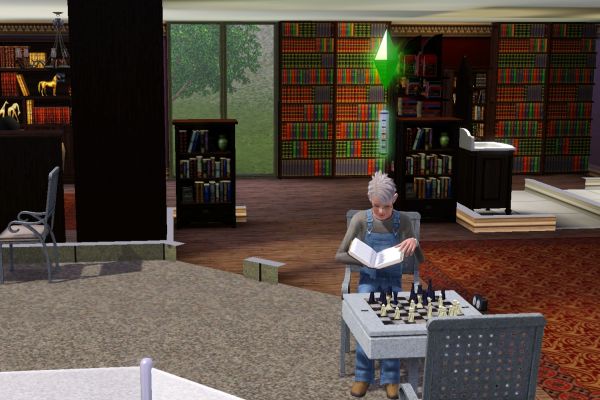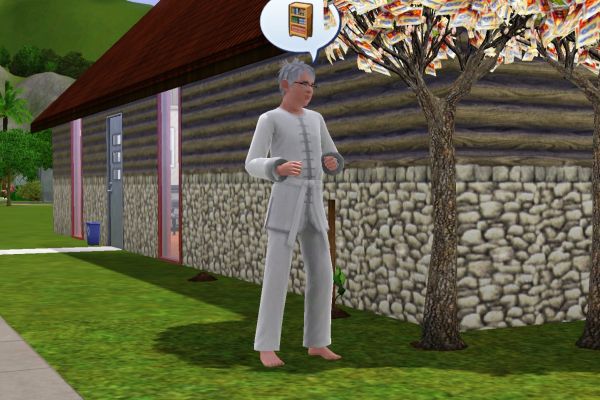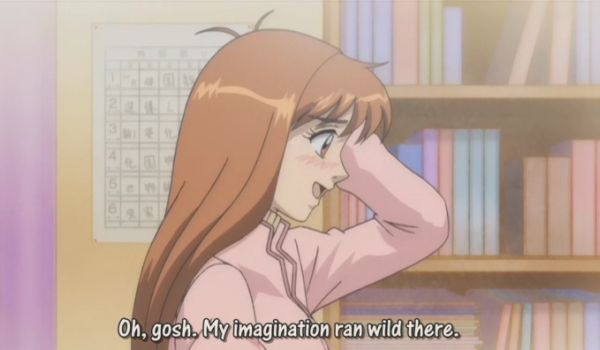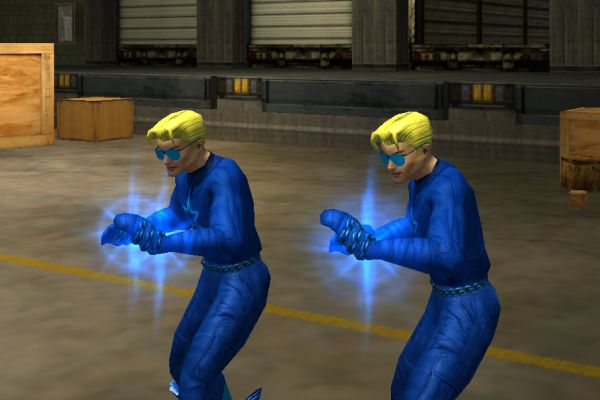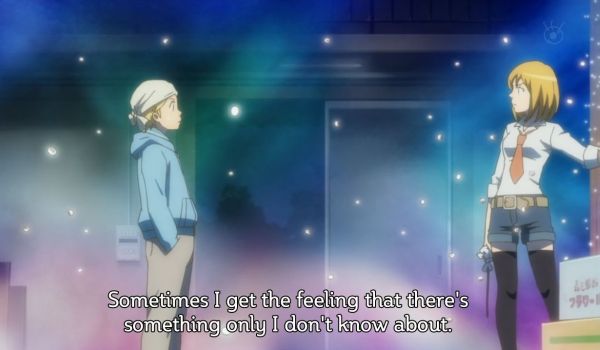
In the anime Moyashimon (and here Moyashimon Returns) the main character is able to see microbes. They appear to him as roughly marshmallow-sized – they are the floating bright things in this picture. Needless to say, people tend to not believe him at first…
My JulNoWriMo novel is not the one with spider-men and squirrel-girls, but something rather more realistic. And that is why it is harder to believe. That is as it should be: High fantasy lets us easily suspend our disbelief, because we know it will be back in full force as soon as we close the book. When we are reading something more realistic, we have to make more of an effort to keep it separate from our everyday reality. This is not so much of the problem if what we read goes along with what we think we already know. But much of what I write is in the borderlands between fact and fiction, or even between sanity and madness.
I was brought to think about this as I had a conversation with a former boss today. Or is it tomorrow? My memory gets a little fuzzy sometimes. Must be the Power of Now. Anyway, she’s not my boss anymore, but we still get along well. We talked a bit about vacation, and the fact that I take November off. (Evidently she never asked me about the reason for this back when she was my boss.) I told her about my writing, and she asked what kind of stories I wrote. And that was when I had to crystallize it. I have been writing for many years, and have dabbled in a number of genres. I still do. But over the last several years, I have noticed a theme in what I write. And it is that uncanny valley between sanity and insanity. The fact that some people can have experiences most don’t, and still remain sane somehow. Or are they?
In real life, there are actually many people who have “supernatural” experiences. They may see a ghost, or an angel, occasionally. They may know things they have never learned, like where some object is located or what someone is thinking. But unlike in superhero comics, these “powers” are usually just kicking in when you are thinking of something else. The more you concentrate on them, the more they fade away. So it is not only impossible to test in a scientific environment, but also mostly useless. Still, for some people this is a part of their life.
As my boss mentioned, we both grew up in villages on Norway’s west coast, where people had a more casual attitude to such things. There were generally a few people, either in this village or the next over, who could see things that others couldn’t. It was usually not a big deal. It was just part of life – life was less structured, less defined than it is now in the age of digital watches. If you are not just the same as everyone else, you know there is a diagnosis waiting for you.
I am descended from families where there were such occurrences from time to time, and I experienced various types of them in my own younger years, although fairly moderate stuff like telepathy and just “knowing things” that I could not possibly have learned. I did not trust myself to live in such a world, and prayed to my God to take it away from me. I also cut down on the emptiness meditation, although I have meditated more lightly over the years with no ill effects, quite the opposite.
Now we live in an age where even religion, which has been part of the normal sphere of life for most people since ancient times, is increasingly seen as some sort of brain malfunction. The more unusual personality types are almost entirely diagnosed and often medicated away, if the diagnosis itself is not enough to silence them. I believe that something important is lost in this process. And I try to restore it. That is the essence of my writing. To bring the fantastic back in a world that has become black and white and rectangular like a chess board, on which most of us are pawns.
So while I do write “high fantasy” occasionally, my home turf is really the urban fantasy, realistic fantasy or fantastic reality, the slightly supernatural, the magically spiritual, these kind of things.
The Japanese new religion Happy Science is a great boon to my writing (as it has been in some other ways too) exactly because it has a greatly expanded universe, where the physical is just a small corner of a much greater reality that is ever-present. Stray spirits drift around like shadows trying to live vicariously through people who don’t reflect on themselves. Angels and other high spirits watch over us, inspire us and try to help us in various ways. Ordinary people are reincarnations of others who have lived in strange and exotic civilizations going back to the age of the dinosaurs or before, many of them arrivals from other star systems in a distant past. Miracles are not only possible but to be expected, although you should always opt for avoiding the need for them through using wisdom if you can. It is a world that is vibrant with extraordinary dimensions and things just barely unseen. And yet, these people seem able to not only hold a job, but frequently become very successful in various corners of the Japanese society.
This summer’s 50 000 words of fiction (well, in a couple days it will be 50 000 words) are roughly inspired by that religion, but takes place on an alternate world that should be well outside their copyright. The name of the great Master is not mentioned (in fact, even I don’t know it) and it is not clear what deity he is supposed to be an incarnation of. But the Servants of Truth (the new religion in the story) live an extraordinary life, some of them more than others admittedly. The main character is one of the more extraordinary. Unlikely coincidences are more or less the rule, and occasionally he has visions or hears the voice of his Guardian Angel. But none of this sends him scurrying to the doctor. Rather, he finds in the Teachings of the Truth a framework where he can feel normal and healthy and even blessed with extraordinary gifts, in a situation where others would have bolted for an early disability pension. He lives a happy, harmonic and productive life, although he increasingly does so with members of the same faith.
In real life, of course, not all are so lucky. And not just lucky in finding a friendly sect. I mean, many of those who hear voices are hearing very angry voices telling them to kill or die, or berating them. Some who have visions have visions of blood and entrails and other horrors. So it is not always easy. But in many cases, I think borderline psychiatric cases could have taken a different turn if they had been accepted and put into a framework where you could use your unique abilities for good instead of being left alone with the voices in your head and heavy medication. Evidently I am not alone in thinking so.
In the Netherlands there is a movement to get people to talk back to the voices in their head. We are talking about people literally hearing voices here, not the internal voices or independent thoughts that authors like me have. Voices that can sometimes not be told apart from actual human voices outside you. These voices are often very aggressive, lambasting people and telling them that they should kill themselves. But when the Dutch patients talk back to them, firmly but respectfully, the voices change their tune. One voice, which had formerly wanted the patient to die, now wanted him to perform Buddhist prayers instead. The man compromised with the voice, reading some Buddhism each day and saying a prayer, and this satisfied the voice.
It is eerily similar to the teachings of Happy Science, in which stray spirits are just unhappy souls who have gone to Hell due to their ignorance, anger and greed. The living can help free them from Hell by living a Light-filled life. Buddhist prayers would be right up there with the things you would offer a malevolent voice in your head in order to help free it from Hell. (I am not convinced it is that easy to get our of Hell, but what do I know, I have only been there while alive, which is I guess more like a preview.)
So anyway, I don’t want to make light of people who are in great suffering because of unusual things happening in their head. There certainly are many who are seriously sick and need help. But I also don’t want people to experience unnecessary suffering because society is super fast to brand them as crazy, when they have experiences that are within the range a human mind can handle. And human minds can be amazingly elastic. I am quietly trying to encourage that, even in my non-fiction.
But if my interest in these matters can help me win JulNoWriMo, I don’t mind that either. ^_^





